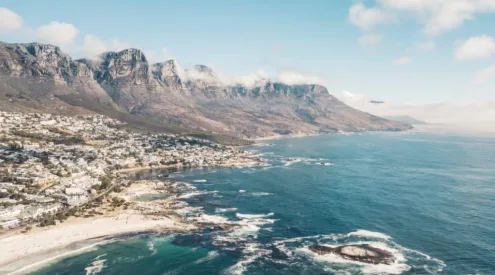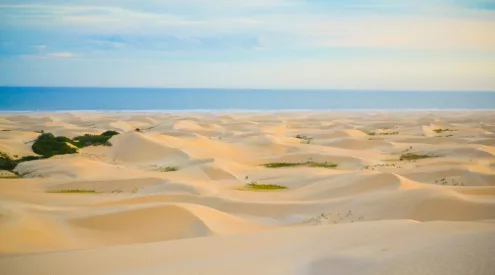Since March, 44 bronze whaler sharks have stranded on beaches between Jeffrey’s Bay and East London, a phenomenon that is baffling scientists.

Male bronze whaler which stranded at Cove Rock, investigated on the 1 May 2022.
Post-mortems of the sharks revealed that they suffered no injuries or any signs of physical injury. In one incident on 6 May, a pregnant shark carrying 11 pups washed ashore on Winterstrand Beach in East London.
‘This is one of the most baffling fish challenges to present itself in a long while,’ said East London Museum scientist, Kevin Cole.

Close up of the female bronze whaler with 4 of her pups investigated on 6 May 2022 at Winterstrand.
Researchers along the Southern and Eastern coasts are collaborating to establish the cause of these standings, which are exclusive to bronze whalers, indicating that the cause is species-specific
There have been two reports of erratic shark behaviour close to the river mouths before the strandings, but ‘none of the strandings which I have investigated have shown any signs of physical trauma to the animals such as bite marks or any other,’ Cole told News24.

Female bronze whaler with 15 pups investigated on the 7th April 2022 at Glengarrif, east of East London.
The public is advised to not eat any of the sharks, as scientists are concerned that the sharks might have some kind of toxin in their body.
These sharks are listed as near threatened on the IUCN red list, but although they are not targeted as part of the fin trade, bronze whalers are one of the few shark species harvested for their meat, which it is the major component of Australia’s “flake and chips” fish dish.

Female bronze whaler with 11 pups investigated on 6 May 2022 at Winterstrand, west of East London.
The public is urged to report any shark strandings to the Bayworld and East London Museums.
Pictures: Kevin Cole
ALSO READ
The Coelacanth: South Africa’s scientific discovery of a living fossil




















